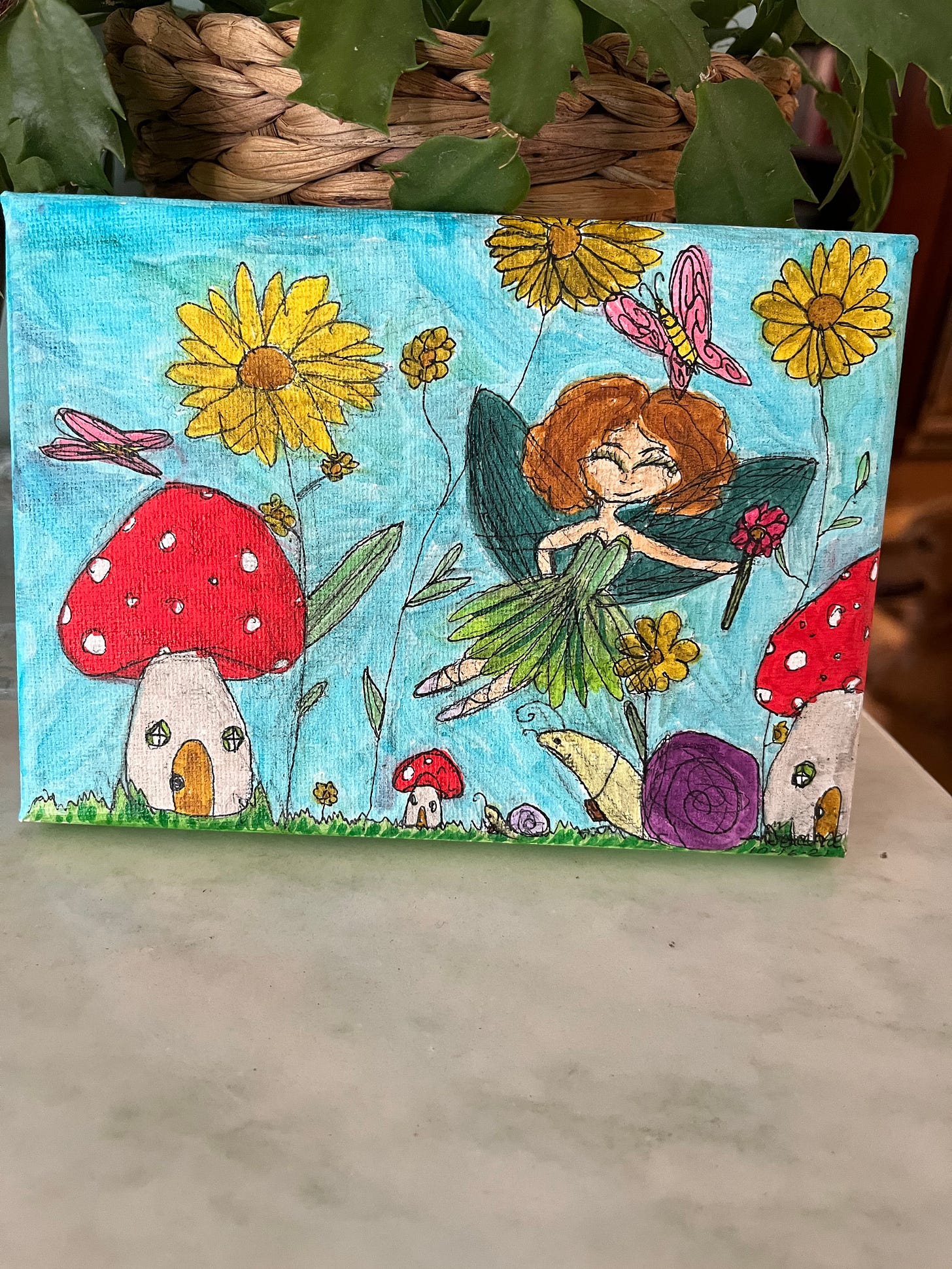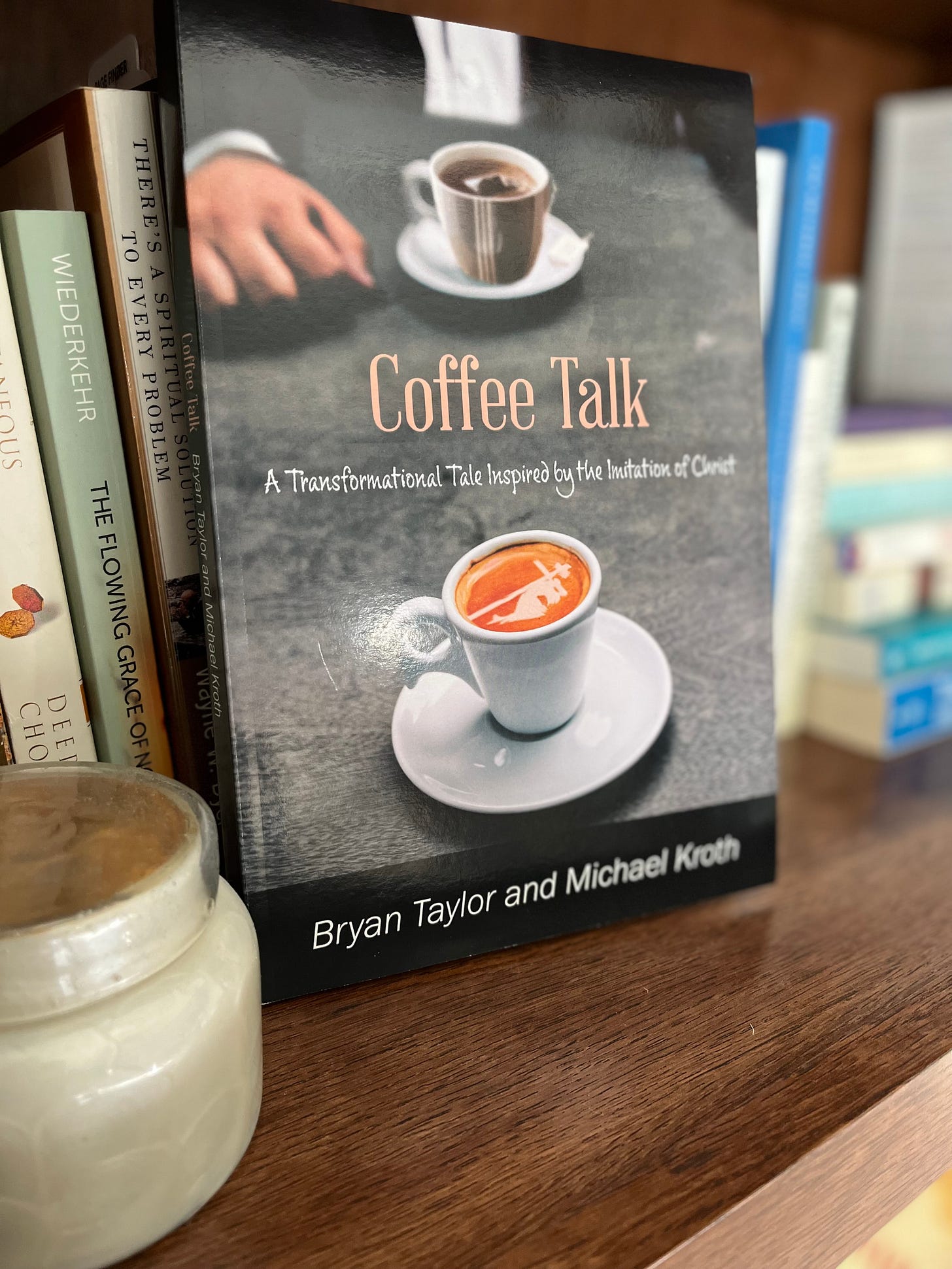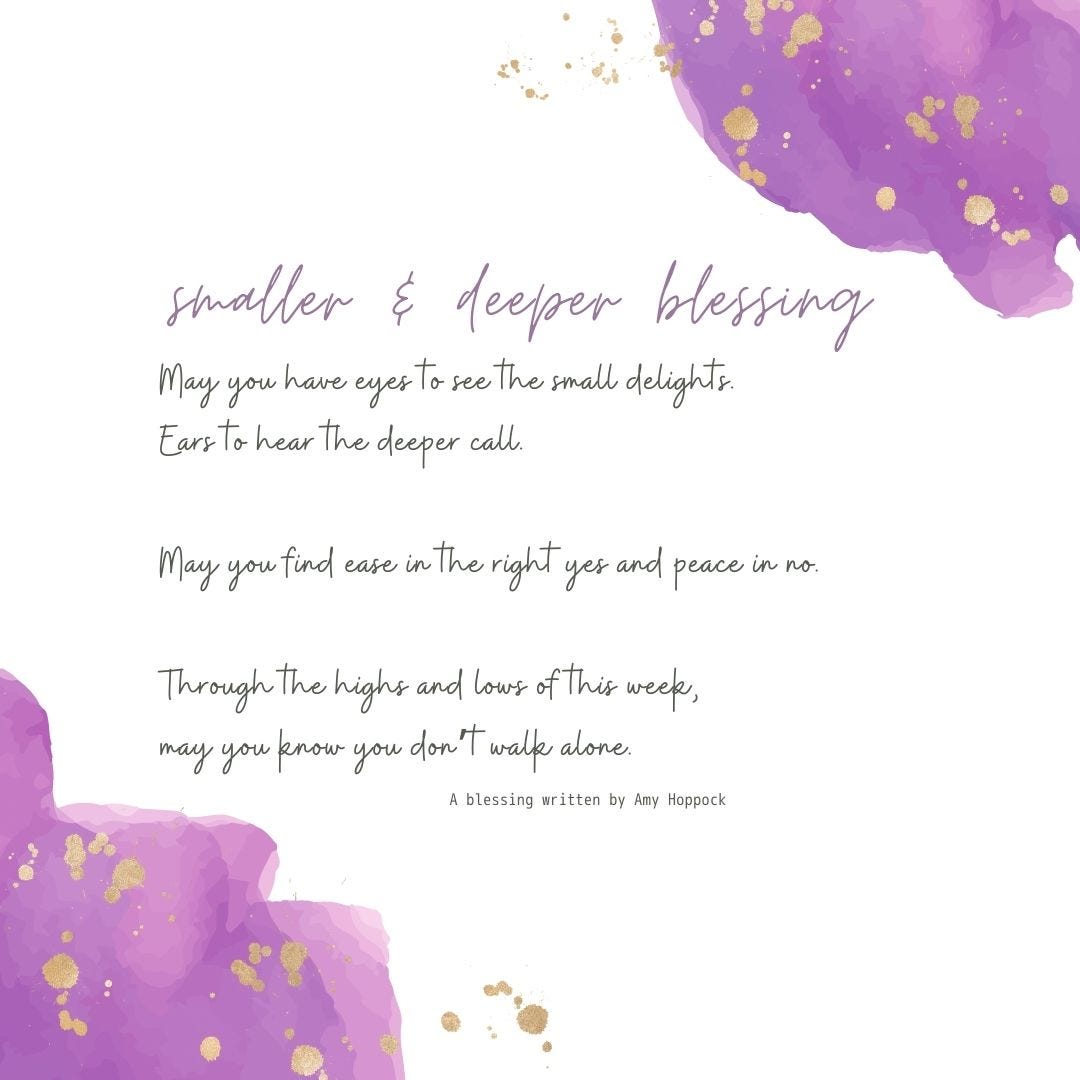w/out imagination there is no memory.
w/out imagination there is no sensation.
w/out imagination there is no will, desire.
From "Rant" by Diane di Prima from Pieces of a Song: Selected Poems.
I'm lucky enough to live with two young souls who have yet to pack away the human treasure of imagination. They lean into possibilities, what-ifs, and I wonder.
My 11-year-old daughter paints, sketches, and (my very favorite) Facetimes with a friend while they work on writing their individual books. They spend hours living in their imagination, creating stories, and dreaming of book covers.
I see the joy, possibilities, and purity of imagination through the eyes of my children.
This week the word imagination raised its hand and invited me to pay closer attention.
Right before I went to bed on Tuesday night, I read the following lines by Patricia Donegan in her book haiku mind: 108 Poems to Cultivate Awareness & Open Your Heart.
"Over her lifetime, the Beat poet Diane di Prima continues to rant, 'the only war that matters is the war against the imatingation.' To protect and revere the imagination, we need to step beyond hope and fear and enter unknown territory."
The only war that matters is the war against the imagination.
That line jumped off the page. It hasn't let me go.
There are many rumors of war real or created being discussed in public discourse right now. It's tiring and confusing. I think that's why this line was so powerful. What if this is the truth behind the truth? What if a war against imagination is what matters?
I woke up on Wednesday morning with those words still rolling in my head. I first read a beautiful piece by Marcie Alvis Walker in her Substack newsletter Black-Eyed Bible Study. (She also is the brilliant mind and heart behind the Instagram account Black Coffee with White Friends.) She invited her readers into a practice of imagination-infused learning by describing the life of a young slave girl in the early 1800s. Then she listed many popular quotes and musings on prayers with the instruction to read them through the eyes of the slave girl. Through the powerful tool of imagination, what I might have considered wonderful words suddenly shifted. Audience matters, imagination is a tool of empathy and an invitation for growth.
The only war that matters is the war against the imagination.
Out of curiosity, I tracked down Diane di Prima's poem. It's called "Rant." Here is a four-minute video of her reading it. It's so worth four minutes.
Imagination is potent. Imagination is subtle. What seems like just an engaging exercise can lodge in our hearts and shift our thinking. Imagination seems less prevalent and respected in a world of responsibilities and facts. But, I wonder if it's more important than ever?
May you dance with your sacred imagination this week.
May you step into the lives of others with curiosity and care.
May you visit with the mysterious other, long enough to find our shared humanity.
May possibilities glimmer.
May ideas shimmer.
May hope sparkle.
Dust off your imagination. Spend five or ten minutes in a gospel account walking in the heart and mind of one of the characters. Perhaps you look to the edges and imagine the people there, but their stories and perspectives aren't written in the text. Or, is there a teacher, activist, idealist that you admire. Invite yourself to dinner at their home. Who else is there? What is the topic of conversation? What is being served? What do you learn and see with new eyes over dinner with someone you admire.
The expert level of this practice is to invite someone whose ideas you dislike to your dinner party. What is the conversation? Who joins you? What do you learn? How do you change your mind, and how do they change their mind? Is it even possible?
Coffee Talk: A Transformational Tale Inspired by the Imitation of Christ by Bryan Taylor and Michael Kroth
Michael Kroth is my Haiku friend, the curator of Profound Living, and the author of this fantastic book. Coffee Talk is the story of two professors in the fictional town of Kempis, Idaho discovering in modern times the power of an ancient book, The Imitation of Christ by Thomas à Kempis. I loved this book! My favorite part was how they cleverly incorporated the lives of classic Saints from Ignatius to St. Theresa, who were shaped by The Imitation of Christ. This is a small book that deserves a broad audience. It demonstrates the power of imagination to make ancient ideas relevant.
Freeing Jesus: Rediscovering Jesus as Friend, Teacher, Savior, Lord, Way, and Presence. By Diana Butler Bass.
Another book that I loved this week. Diane describes her book as memoir theology. The description rings true. In every chapter, she illustrated a truth that in many cases made my jaw drop and my mind say, "wait, why have I never heard that before?" If you are discouraged by the church, this book is for you. If you have ever said Jesus is interesting, but I can't stomach the way the church operates in the world. This book might be exactly what you need. There are so many ideas I want to share from this book, but I wouldn't want to take away from the profound experience of stumbling on ideas that genuinely shifted paradigms.
“My story can never be your story (that is called colonization—something I hope we are leaving behind). But my story might inform yours, or be like yours, or maybe even add depth or another dimension to yours. If nothing else, sharing our stories might lead to greater understanding, tolerance, appreciation, and perhaps even celebration of our differences.”
― Diana Butler Bass, Freeing Jesus: Rediscovering Jesus as Friend, Teacher, Savior, Lord, Way, and Presence
I try to pay attention to words or phrases that stand out in my reading and listening. There is a spiritual practice called Florliledgium that collects short, interesting pieces {words that “sparkle” up} and puts them together. This is kind of like that. Watching for things that sparkle. Gathering them and seeing how they work together and what message, mantra, or new idea might arise.
A Practice:
Read slowly.
Notice if a word or phrase stands out to you.
How do the words make you feel?
Is there an invitation?
(I’m sharing in italics the lines that stand out to me in these passages. Maybe it’s the same, or maybe it’s different, there is much food for thought in each of these passages)
If we practice living mindfully, we slowly begin to see the holiness of so many things that remain hidden when we choose to rush through the hours, striking tasks from the list of things we must accomplish by day's end. It will be a happy moment when we remember to add the wise act of pausing to our to-do lists.
This pause can be as simple as standing attentively before a flowering plant or listening to the frogs in the pond. Perhaps we can stop for a cleansing breath: Breathe in the spirit of the hour; breathe in gratitude and compassion for yourself; breathe out love and encouragement for your co-workers, friends, family members. Your pause may be an awakening stretch, or sitting quietly and remembering your name. If you can learn the art of pausing, your work will prosper and be blessed.
Macrina Wiederkehr in Seven Sacred Pauses
"Look well to the growing edge. All around us worlds are dying and new worlds are being born; all around us life is dying and life is being born. The fruit ripens on the tree, the roots are silently at work in the darkness of the earth against a time when there shall be new lives, fresh blossoms, green fruit. Such is the growing edge! It is the extra breath from the exhausted lung, the one more thing to try when all else has failed, the upward reach of life when weariness closes in upon all endeavor. This is the basis of hope in moments of despair, the incentive to carry on when times are out of joint and men have lost their reason, the source of confidence when worlds crash and dreams whiten into ash. The birth of a child — life's most dramatic answer to death — this is the growing edge incarnate. Look well to the growing edge!" —Howard Thurman









